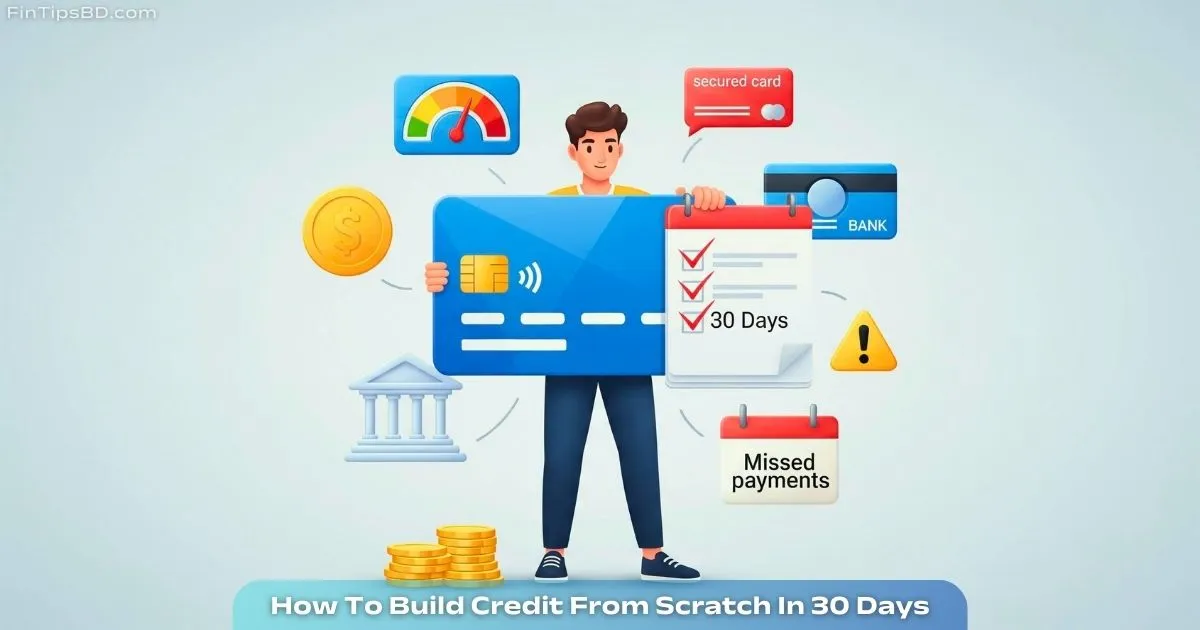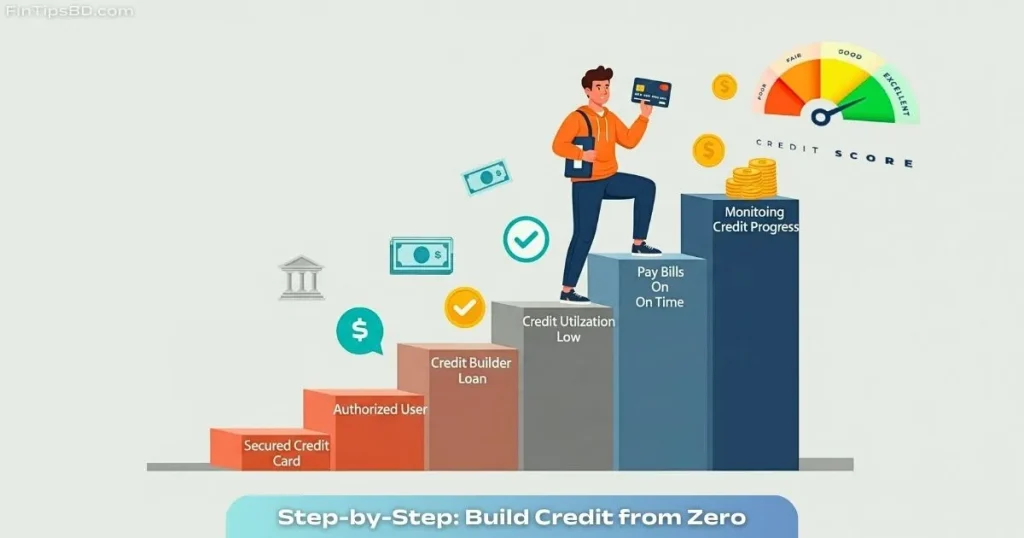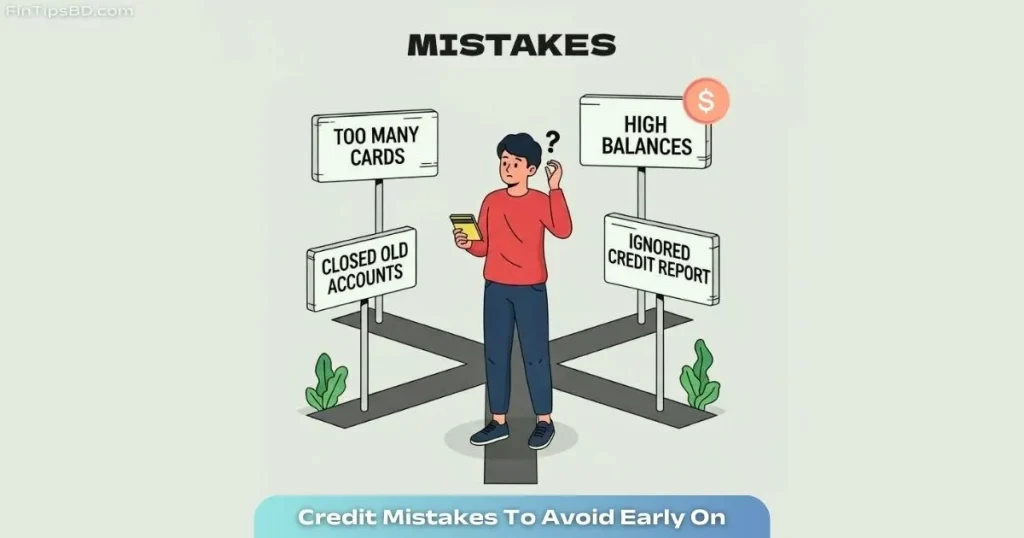How To Build Credit From Scratch In 30 Days – Avoid These Costly Mistakes!

Starting from zero with credit might feel intimidating, but it’s actually one of the smartest financial moves you can make early on. Whether you’re turning 18, newly settled in a different country, or just haven’t used credit before, understanding how to build credit from scratch can open up long-term financial benefits.
From getting approved for a rental to landing low-interest loans—or even qualifying for some job opportunities—your credit score plays a bigger role than most people realize. The best part? You can begin seeing progress in just 30 days, as long as you take the right steps and avoid typical missteps.
Table Of Contents
Why Your Credit Score Is More Important Than You Think
Before diving into the how-to, it’s essential to understand why building credit early truly matters. Your credit score is a three-digit number that reflects how dependable you are when it comes to borrowing money. It’s calculated based on things like how you handle payments, how much of your available credit you’re using, the age of your credit accounts, how often you apply for new credit, and the variety of credit types you use.
If you’ve never used a credit card or borrowed before, chances are you don’t have a credit score at all. And that can be just as limiting as having a bad one. You might get turned down for loans, be rejected when applying for an apartment, or get stuck with high-interest rates—just because lenders don’t have enough info to judge your reliability. Imagine trying to rent a flat with no proof you’ve paid bills on time—landlords may hesitate. The same goes for car loans, or even getting a mobile phone plan.
Knowing how to build credit from scratch—whether you’re 18 or older—helps you sidestep these obstacles early. It gives you access to better financial tools and options as you go through life. A strong credit profile can open doors, while having no credit history at all can keep them shut.
Step-by-Step: How to Build Credit from Scratch

Creating a strong credit foundation doesn’t require a big bank account or years of financial experience. With a few smart steps, you can start building credit and possibly see your score appear within a month. Here’s where to begin:
1. Start with a Secured Credit Card
One of the quickest and easiest ways to kick off your credit journey is by getting a secured credit card. These work differently from regular cards—they need a cash deposit (usually between $200 and $500) that acts as your credit limit. This security deposit lowers the risk for the credit card company, making approval easier if you have no credit history.
Once you’re approved, your spending and payment habits are shared with the major credit bureaus (like Equifax, Experian, and TransUnion). If you use the card for everyday purchases—like groceries, transport, or small bills—and pay off the full balance every month, you’ll show lenders that you’re responsible with money. Over time, this steady, positive behavior builds your credit profile.
Pro Tip: Look for secured cards with no annual fees. Also, go for cards that let you “graduate” to an unsecured card after several months of timely payments. This shows lenders you’re ready to handle regular credit, which boosts your financial credibility.
2. Become an Authorized User
If a family member or trusted friend has a credit card with a solid history of on-time payments and low balances, ask if they can add you as an authorized user. You don’t even need to use the card—just being linked to the account means the payment history and usage will show up on your credit file.
This tactic can give your credit score a helpful bump, especially when you’re starting from zero. It lets you build credit by “borrowing” some of the account’s good history. But make sure the primary cardholder is financially responsible. If they miss payments or carry high balances, it could hurt your score too. Choose someone dependable, because their actions will reflect on your report.
3. Apply for a Credit Builder Loan
A credit builder loan is made for people with little or no credit background. It works like this: instead of receiving money upfront, you agree to make monthly payments toward a locked savings account. For instance, you might borrow $500 and repay $50 per month for 10 months. At the end of the term, you get the $500 back—and more importantly, your consistent payments are reported to the credit bureaus.
This type of loan helps in two ways: you build your score by showing that you can make payments on time, and you end up saving money at the same time. Many credit unions and online banks offer these loans and are often open to working with newcomers to credit.
4. Keep Your Credit Utilization Low
One of the most commonly overlooked tips when learning how to build credit from scratch is managing your credit usage wisely. Credit utilization simply means how much of your available limit you’re using. For example, if your credit card has a $500 limit and you’re carrying a $100 balance, your usage is 20%.
Lenders prefer to see low usage—ideally below 30%. So if your secured card offers a $300 limit, try to stay under $90 at any time. The less of your available credit you use, the better it looks to lenders. High utilization might make it seem like you’re relying too much on credit, which could signal risk.
Even if you pay your bill off completely every month, the balance reported at your statement closing date still counts. To keep your score looking good, try to pay down your balance before that date if you can.
5. Always Pay Your Bills On Time
When it comes to your credit score, nothing matters more than your payment history. It makes up about 35% of your score, making it the biggest single factor. Even one missed payment can cause your score to drop significantly—and it can stick around on your report for up to seven years.
Whether it’s a credit card, credit builder loan, or even a utility bill that reports to the credit agencies, paying on time every single month is crucial. Set up auto-pay or use reminders to make sure you never miss a due date. Treat each payment like it’s essential—because it is.
A long, clean payment record is one of the strongest ways to build and maintain good credit.
6. Keep an Eye on Your Credit Progress
Watching your credit grow over time can be encouraging—and it’s also a great way to catch issues early. Sites like Credit Karma and Credit Sesame, or even your bank’s app, often let you check your credit score and report for free.
Get into the habit of reviewing your report at least once a month, especially when you’re just starting out. Make sure everything is accurate—check for any accounts you don’t recognize, mistakes in your info, or signs of fraud. The earlier you catch an error, the easier it is to fix.
Keeping tabs on your credit can also help you understand which habits are helping—or hurting—your score. It gives you a clearer picture of your progress and helps you stay on track.
Mistakes to Avoid When Building Credit

Understanding how to build credit from scratch is only half the battle. It’s just as important to steer clear of missteps that can undo your progress before your credit profile even gets off the ground.
Applying for Too Many Cards Too Quickly
Every time you apply for a credit card, the lender does a hard inquiry on your credit report—a detailed check of your credit background. Too many applications within a short period can raise red flags for lenders. It might look like you’re desperate for credit, which can hurt your chances of approval.
Start with one secured credit card. Let it age for at least six months while you build a steady payment history. Once you’ve established a pattern of on-time payments, you can think about adding another credit product. In the beginning, slow and steady wins the race.
Carrying High Balances
Even if you always pay on time, carrying large balances compared to your credit limit will hurt your score. As mentioned earlier, aim to keep your usage below 30%—and ideally under 10% for the best results.
Use your card for smaller, manageable purchases—like groceries or a streaming subscription—that you can pay off right away. This approach keeps your balance low and your score moving upward.
Closing Old Credit Accounts
The age of your credit history is another key factor in your score. If you open a secured card or get added as an authorized user, it’s best to keep that account open, even if you don’t use it often. As long as it stays in good standing, it helps build your “average account age,” which has a positive effect on your credit.
Closing older accounts can actually shorten your credit history and lower your score. Unless there’s an annual fee you can’t justify, keep older accounts open to let them work in your favor.
Ignoring Your Credit Reports
You’re legally allowed one free credit report each year from the three main bureaus—Equifax, Experian, and TransUnion—through AnnualCreditReport.com. Make sure to use this resource.
Scan your reports for errors, such as accounts you didn’t open, incorrect personal information, or late payments that shouldn’t be there. Even small mistakes can drag your score down, so it’s worth checking regularly and disputing anything that looks off.
How Long Until You See Results?
If you stick to these habits, you might see your very first credit score appear within 30 to 60 days. While it won’t be an amazing score at the start, it’s a strong step in the right direction. With time, consistency, and responsible use, your score will steadily rise.
A lot of people assume it takes years to build credit—but the reality is that your first month of good habits lays the groundwork. Building excellent credit does take time, but getting started and seeing early results happens faster than most expect.
Final Thoughts
Learning how to build credit from scratch is one of the most valuable financial skills you can pick up. You don’t need a big salary or a fancy credit card—just a few smart moves and a bit of patience.
Start small. Open that secured card, make one small purchase, and pay it off before the due date. Within weeks, you’ll begin building a real credit history—and that can open the door to better financial options down the line.
Once you understand the basics and stay away from common mistakes, building credit becomes pretty straightforward. It’s all about having a plan, sticking with it, and being consistent. The sooner you start, the sooner your credit can start working for you.
Keywords: how to start building credit at 18, build credit with no credit history, fast ways to build credit, how to build a credit score from scratch, credit tips for beginners, secured credit card tips, build credit without a credit card, credit mistakes to avoid
